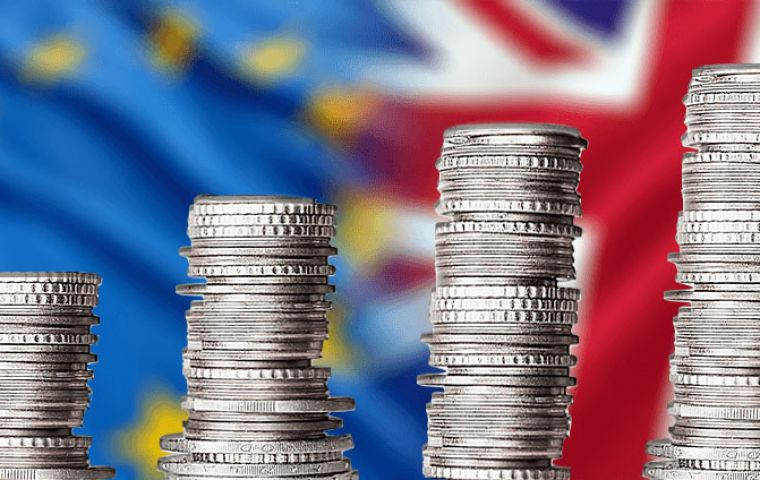MercoPress. South Atlantic News Agency
Debate triggers in EU as to how the €12-billion hole left by UK will be filled
 UK's departure further complicates an already fraught debate between the remaining member states over the EU's 2021-2027 long-term budget
UK's departure further complicates an already fraught debate between the remaining member states over the EU's 2021-2027 long-term budget When Britain leaves the European Union at midnight on Friday (Jan 31) the bloc loses the second-biggest net contributor to its budget, leaving a €12-billion (US$13-billion) hole in its finances.
The United Kingdom will continue making budget contributions this year under an agreed post-Brexit transition period. But from 2021 Europe will have to look elsewhere.
This further complicates an already fraught debate between the remaining member states over the EU's 2021-2027 long-term budget, called the Multiannual Financial Framework (MFF).
The European Commission has had a proposed MFF on the table since May 2018, and its new president Ursula von der Leyen is keen to get it approved soon. But a so-called “Frugal Five” of wealthy mainly northern countries - Austria, Denmark, Germany, the Netherlands and Sweden - are seeking to limit EU expenditure.
And a rival “Friends of Cohesion” group of 16 eastern and Mediterranean countries wants to defend the budget rules.
Charles Michel, president of the European Council which represents member state governments, has called an MFF summit that will “begin” on Feb 20 and likely drag on.
According to European Commission estimates, Britain's net contribution - the amount it pays in less EU spending on UK projects - would have been €12 billion a year. Over the period of the upcoming seven-year MFF that leaves an €84-billion shortfall in the Commission's financial plans.
The previous finance commissioner, Gunther Oettinger, wanted to fill the gap by increasing member state contributions and cutting traditional big spends: cohesion and farm subsidies.
This would allow Europe to switch funds to more “modern” areas, like investing in green technologies, coping with migration and moving into the defense field. But much of this is very sensitive in EU capitals, and Michel has trekked all over the continent for talks without much sign of a breakthrough.
“We might have hoped that Brexit would be a shock to the system, but I think we'll just go on as before,” laments Nicolas-Jean Brehon, of the Robert Schuman Foundation.
Some of the richest members of the union want to limit contributions to only one per cent of each member state's GDP.
The European Commission, meanwhile, wants to set the level at 1.114 per cent of EU GDP, which would imply a €1.134-trillion budget at 2018 prices, or 1.279 trillion at current levels. The European Parliament would like an even higher 1.3 per cent.
Taking into account the British departure, the current multiannual budget represents 1.16 per cent of European Union GDP.




Top Comments
Disclaimer & comment rulesCommenting for this story is now closed.
If you have a Facebook account, become a fan and comment on our Facebook Page!